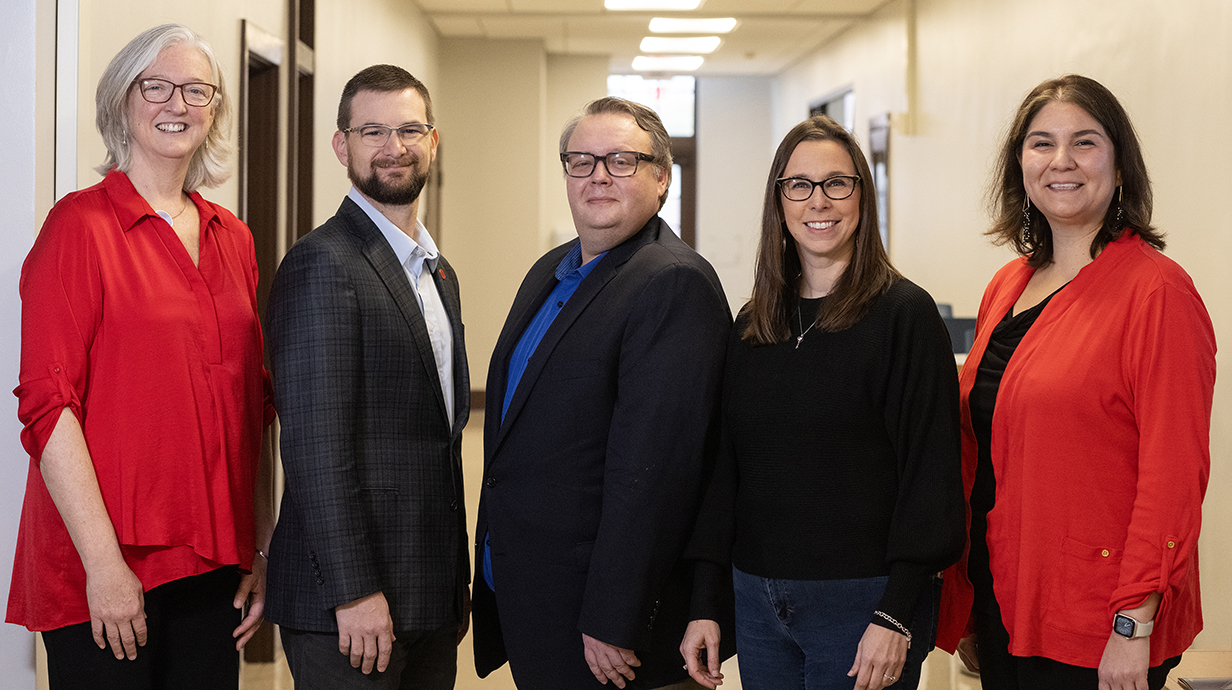University Receives Funding to Promote Equity in STEM
Project part of NSF program to further gender equity in academia
OXFORD, Miss. – The National Science Foundation has awarded the University of Mississippi a grant to support research related to faculty gender equity and representation in science, technology, engineering and mathematics fields at the institution.
The $300,000 "Catalyst" award comes from the NSF's ADVANCE program. The program seeks to eliminate the barriers that restrict opportunities for women faculty to participate and advance in STEM fields.
Although women make up more than half of the nation's population, they make up only one-third of people employed in STEM-related occupations. This disparity is consistent in faculty representation as well; according to Inside Higher Ed, 28% of STEM professors and associate professors nationwide are women, despite receiving 40% of STEM doctorates over the last 10 to 15 years.
The RESHAPE, or Researching Equity Surrounding Hiring and Promotion project, is led by Stephanie Miller, provost research scholar for institutional transformation.
The project will examine university policies in hiring and promotion, Miller said. The investigators will also ask for faculty input through experience surveys and focus groups to better understand personal experiences.
"This is an institutionwide project," Miller said. "We want UM voices to inform it. We plan to talk with faculty and groups across the institution. There are a lot of elements that are related to a variety of initiatives across campus, including the Chancellor's Commission on the Status of Women.
"We will also be working with the Division of Diversity and Community Engagement through Dr. (Shawnboda) Mead's task force focused on women's leadership."

Miller is the university's first provost research scholar for institutional transformation. The Office of the Provost and Division of Diversity and Community Engagement developed the position to build collaborative research teams on campus that can expand externally funded research for diversity, equity and inclusion.
This project comes on the heels of the university securing a grant from the Howard Hughes Medical Institute to collaborate with other institutions on projects aimed at promoting inclusive excellence in STEM education.
Kirsten Dellinger, associate dean for diversity, equity and inclusion in the College of Liberal Arts, is an investigator on both grants.
"By receiving the Catalyst grant, we are joining other universities who are dedicated to making STEM a more equitable space on campus for all faculty," Dellinger said. "It is exciting that we will be recognized as an institution invested in creating systematic and intentional change to support women faculty and faculty from other underrepresented groups."
Other investigators on the project are Adam Smith, associate dean of undergraduate education in the School of Engineering; Carrie Smith, associate professor of psychology and Sarah Isom Fellow; and Joseph Wellman, associate professor of psychology and Sarah Isom Fellow.
"I hope to see a growing visibility and appreciation of women's work in STEM and a collective dedication to improving the experiences of women faculty and faculty from underrepresented groups in STEM fields – and all fields – on campus," Dellinger said. "If the Catalyst grant could lead to a five-year adaptation or institutional transformation grant, it would be an incredible opportunity for continued growth."
The results will help develop a plan to increase representation, retention and advancement of women faculty across STEM departments at the University of Mississippi, Miller said.
"There is a lot of research out there that shows that having diverse voices across our STEM faculty and across the type of work we're doing makes us better as scientists and teachers," she said. "I think it's important for our students to see representation in their faculty.
"Multiple perspectives are good for science, and they are good for teaching as well."
This material is based upon work supported by the National Science Foundation under Grant No. 2311996.
